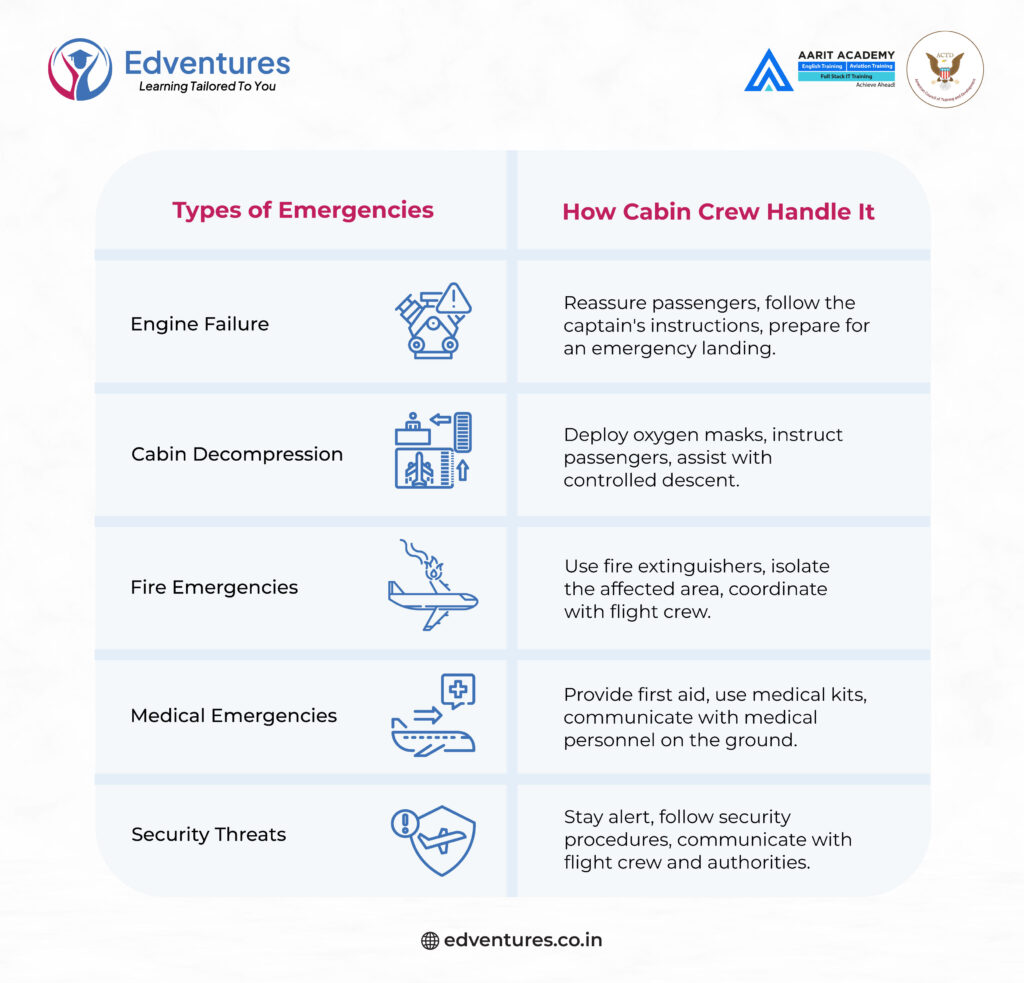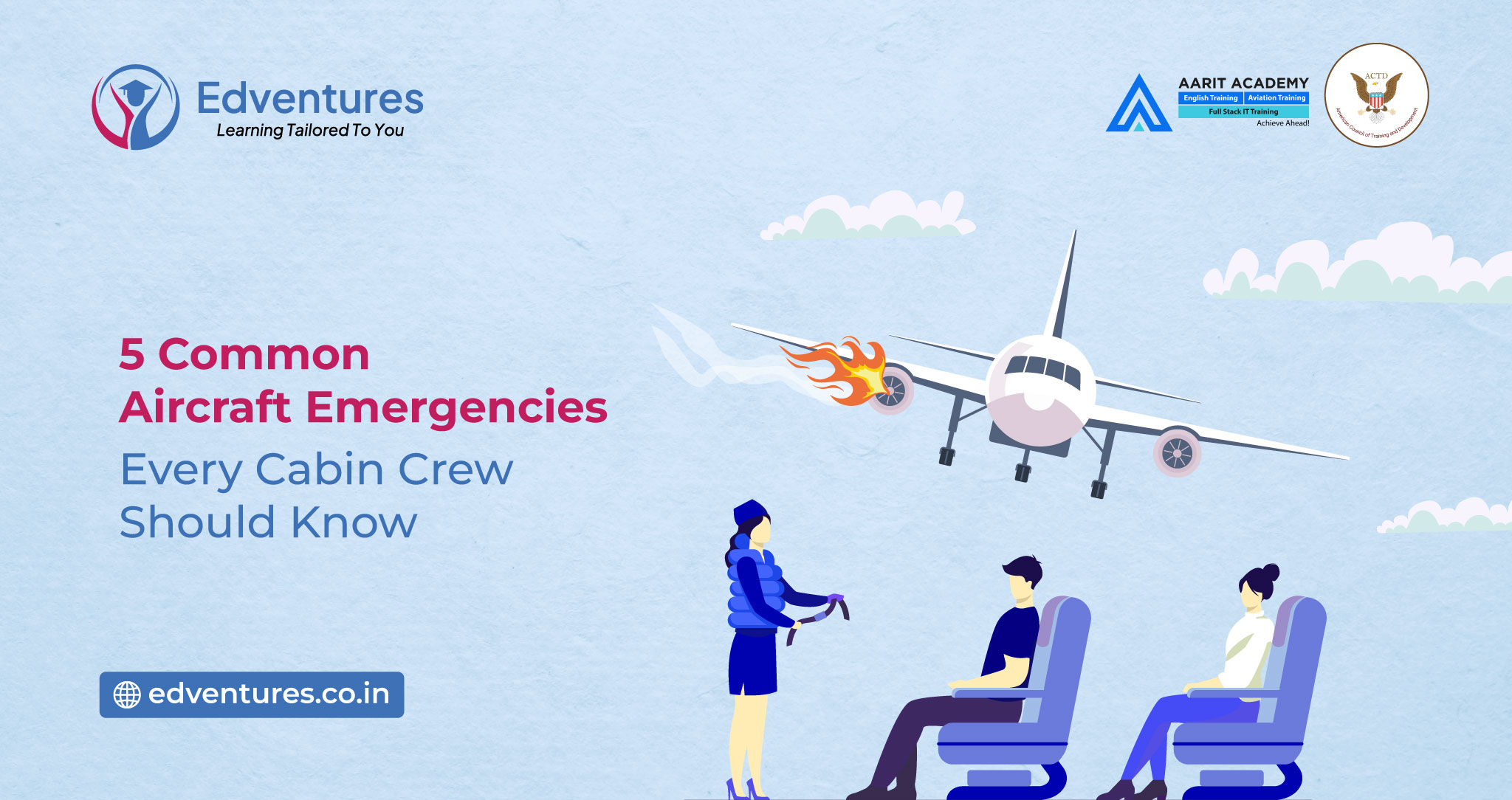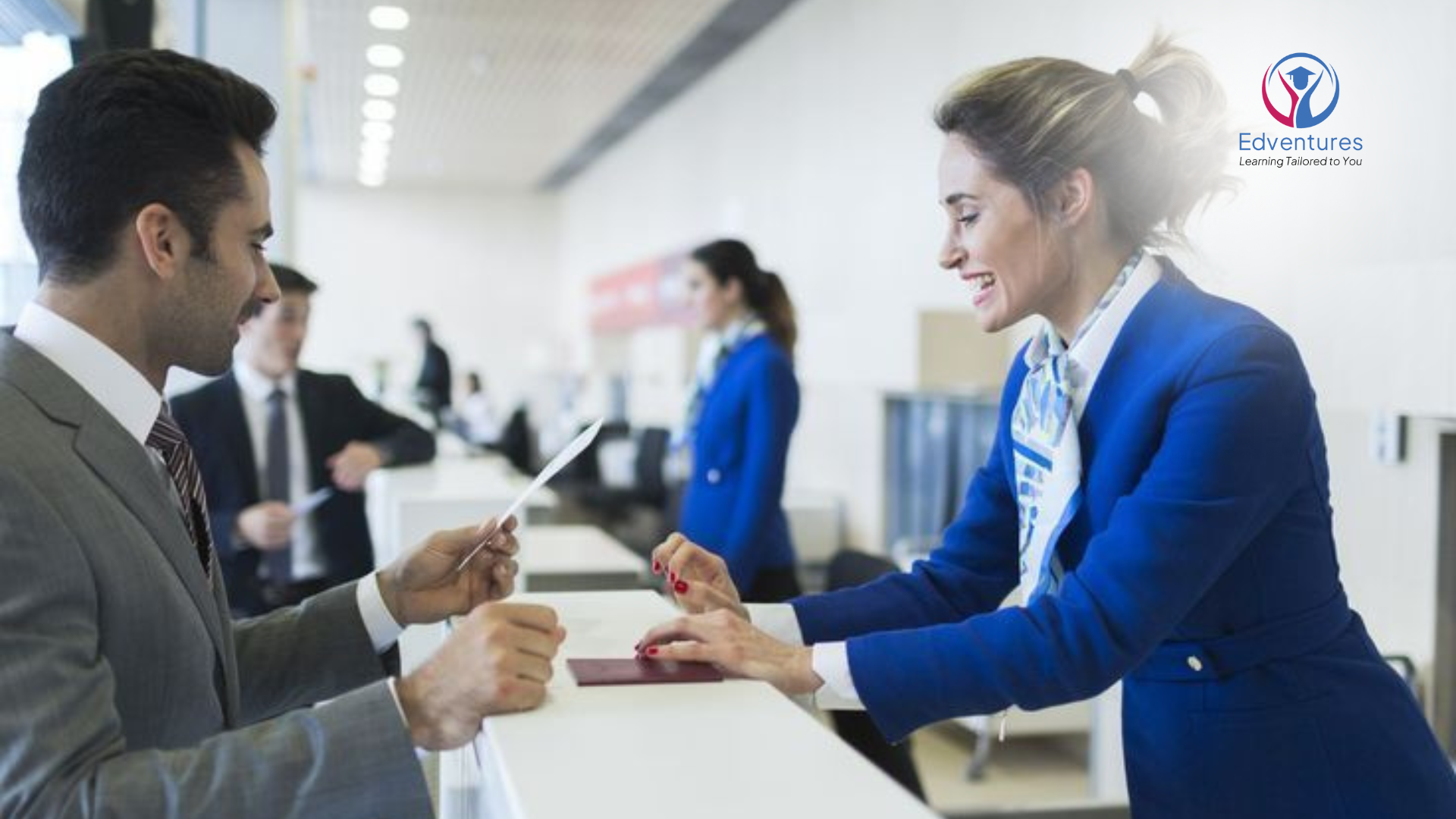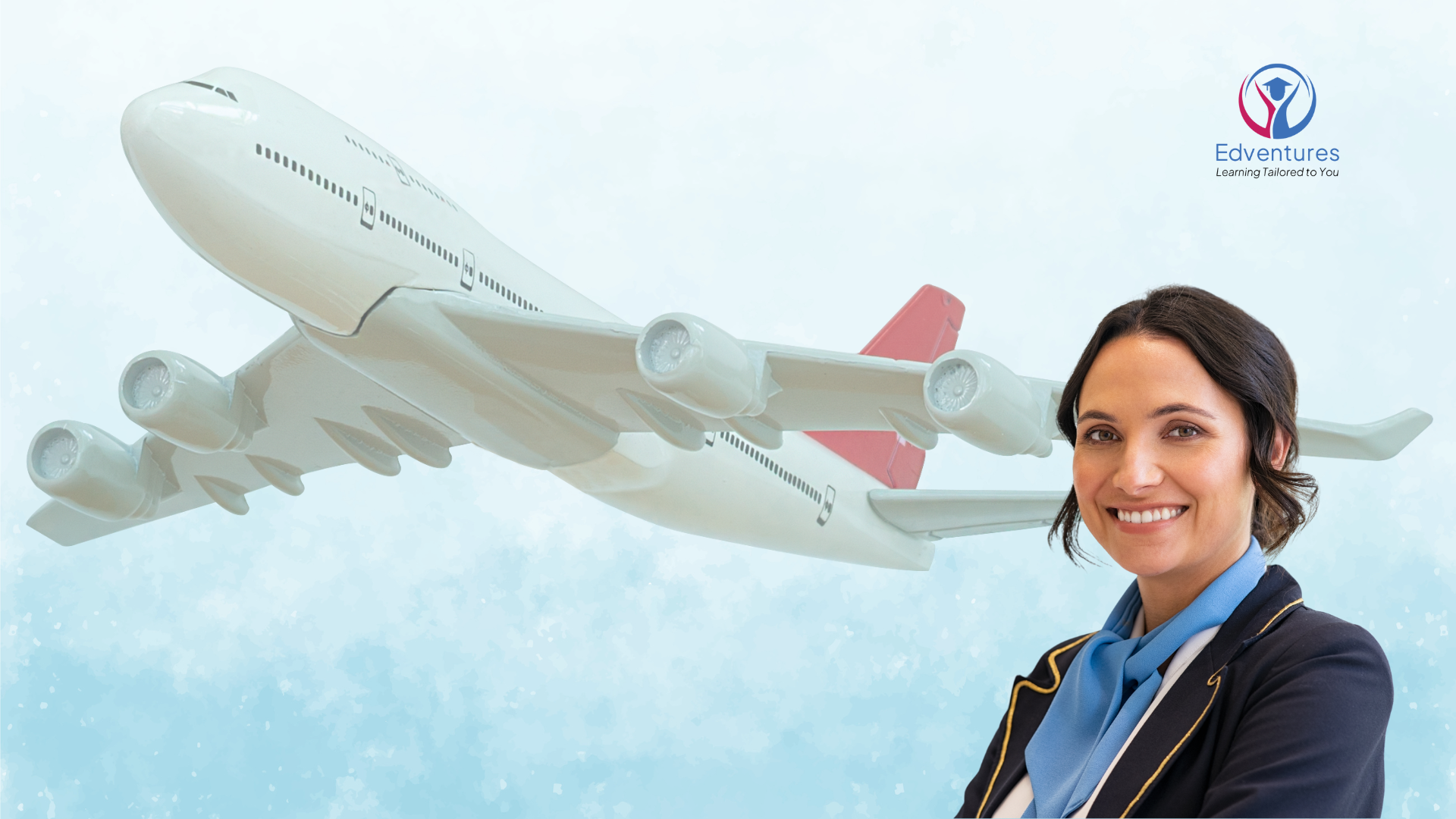Have you ever wondered what it takes to ensure the safety of passengers during a flight?
Ever wondered about the range of emergencies that could arise and how cabin crew manage these situations with proper training? Cabin crew training institutes provide extensive training on emergency response protocols, equipping crew with the skills to handle various in-flight emergencies effectively.
In the fast-paced and dynamic world of aviation, the role of cabin crew goes far beyond serving meals and drinks. They are the unsung heroes of the skies, equipped with the skills and knowledge to handle a variety of emergencies. In the ever-evolving aviation industry, it is essential for cabin crew to stay informed and prepared for various aircraft emergencies that may arise. The cabin crew courses in India gives a deep understanding of the safety procedures, preparing crew members for all scenarios.
Table of Contents
ToggleTypes of Aircraft Emergencies
Air travel has become an integral part of modern life, connecting people and cultures across the globe. At the same time, several aircraft emergencies can occur due to various factors, including mechanical failures, weather conditions, and human error. Some of the emergencies that cabin crew members should be prepared for include:
1. Engine Failure
Engine failure, though rare, is a critical situation that the crew is rigorously trained to handle. Several factors can contribute to an engine failure, including mechanical malfunctions, fuel system issues, or even foreign object debris ingestion. In such events, the crew must remain calm and follow established procedures like attempting a restart or executing a safe landing at the nearest suitable airport.
2. Cabin Decompression:
A sudden loss of cabin pressure can be life-threatening and requires immediate action from the cabin crew to initiate emergency procedures, such as deploying oxygen masks and initiating a controlled descent.
3. Fire Emergencies:
Fires on board an aircraft, whether in the cabin, cargo hold, or engine, pose a significant risk and require prompt action from the cabin crew to contain and extinguish the fire, as well as coordinate with the flight crew for necessary procedures.
4. Medical Emergencies:
From minor illnesses to life-threatening conditions, cabin crew members are given training to provide initial medical assistance and coordinate with ground-based medical personnel for further support.
5. Security Threats:
In today’s world, the risk of security threats, such as hijacking attempts or terrorist activities, cannot be ignored. Cabin crew must be vigilant and trained to handle such situations calmly and effectively, following established security protocols.

What are the most effective aviation safety procedures for cabin crew?
Cabin crew is essential for ensuring the safety and comfort of passengers and crew on board an aircraft. They must follow a set of aviation safety procedures that are designed to prevent, prepare for, and respond to various emergencies and situations. These procedures include:
- Pre-flight Briefing: Cabin crew must attend a comprehensive briefing before each flight, covering safety protocols, emergency procedures, and any specific information related to the upcoming flight.
- Cabin Checks: Prior to boarding, cabin crew must thoroughly inspect the cabin, ensuring that all safety equipment is in place and functioning properly, and that the cabin is clean and ready for passengers.
- Safety Demonstration: During the pre-flight safety briefing, cabin crew must demonstrate the proper use of safety equipment, such as oxygen masks, life vests, and emergency exits, to ensure that passengers are well-informed and prepared in case of an emergency.
- In-flight Service: Throughout the flight, cabin crew must remain vigilant, monitoring the cabin for any potential safety concerns and providing attentive service to passengers.
- Emergency Response: In an unpredictable situation, cabin crew must quickly and efficiently implement the appropriate emergency procedures, ensuring the safety of passengers and coordinating with the flight crew as needed.
- Post-flight Debriefing: After each flight, cabin crew should participate in a debriefing session to discuss any incidents or concerns that occurred during the flight, allowing for continuous improvement and learning.
Professional Training Options
To ensure that crew are well-prepared to handle various aircraft emergencies, several cabin crew training institutes and academies offer comprehensive cabin crew courses and air hostess training in India. These cabin crew courses cover a wide range of topics, including safety procedures, emergency response protocols, first aid, security measures, and customer service skills. Similarly, air hostess courses in India offer comprehensive training on aspects such as in-flight service, passenger interaction, grooming standards, food and beverage management, and hospitality skills.
By enrolling in a reputable cabin crew academy, aspiring and experienced cabin crew members can gain the knowledge, skills, and practical experience necessary to excel in their roles and ensure the safety of passengers and crew alike.
Edventures, a leading cabin crew training in Bangalore, provides comprehensive training, from the little things like service etiquette to full-scale emergency scenarios. The modules review a dozen scenarios from unpredictable human behavior to mechanical and flight issues.
Handle Emergency Situations like a Pro!
Responding to emergencies on board an aircraft requires a combination of specialized training, quick thinking, and a calm demeanor. If you’re inspired to join this profession, comprehensive training is essential. Edventures, offer a range of aviation courses in Bangalore, India which includes cabin crew courses, air hostess courses designed to provide the necessary skills and knowledge for a successful career in aviation. Cabin crew must be able to assess the situation rapidly, prioritize actions, and communicate effectively with passengers and other crew members. Ready to take the next step in your aviation career? Enroll in the cabin crew training programs today!






